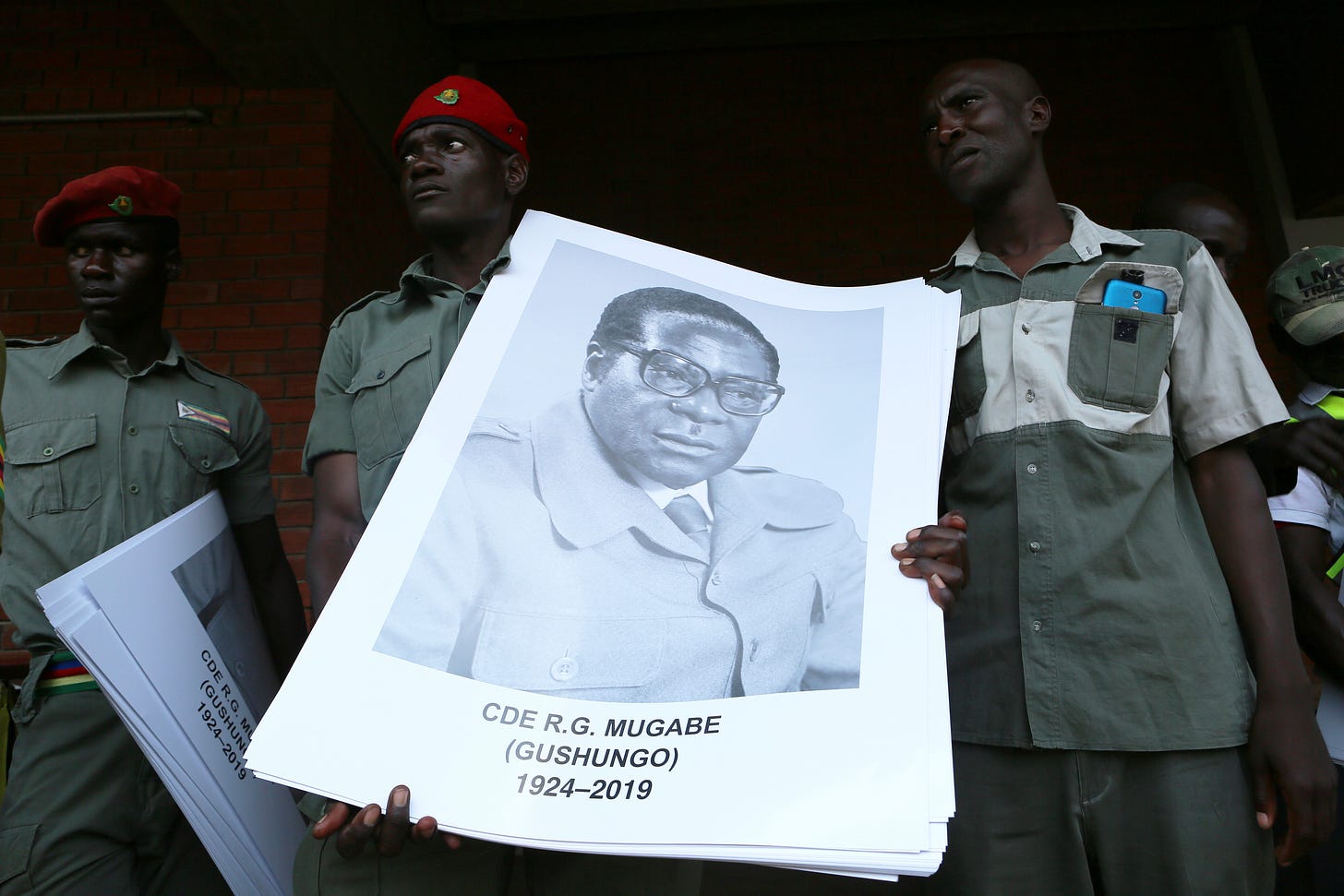Related highlights:
—
If you think the press will cool it with the histrionics following the election of Joe Biden, the New York Times is here to disabuse you of that notion.
The paper of record this week published a news report — not an opinion article — comparing President Trump to several notorious dictators, including Alexander Lukashenko, Robert Mugabe, Nicolas Maduro, Slobodan Milosevic, Laurent Gbagbo, and Augusto Pinochet.
The comparable trait? Trump's refusal to concede defeat.
More appropriate comparisons exist, to be certain. The United States has several politicians who famously refused to admit electoral defeat — Al Gore and Stacey Abrams, to name just two.
It is probably just an oversight that neither name appears in the New York Times article, right?
“Trump’s Post-Election Tactics Put Him in Unsavory Company,” reads the report’s headline. Its subhead adds, “Denying defeat, claiming fraud and using government machinery to reverse election results are the time-honored tools of dictators.”
What is worse than the New York Times’s obvious attempt to compare Trump to murderous strongmen is that it does so in such a mealy-mouthed way, failing to muster even enough courage to come right out and say what it clearly believes about the U.S. president.
After accusing Trump of taking a page from “Lukashenko’s playbook,” for example, the report coyly winks at the reader, saying, “The parallel is not exact. But..." Well, then!
After likening Trump to the Soviet-backed leader of Hungary, Matyas Rakosi, who rose to power through political purges, the paper winks again: “Nobody expects Mr. Trump to follow that gruesome example. But…" After comparing the president to war criminal Milosevic, the New York Times clarifies, “Mr. Trump does not have to worry about being charged with war crimes and genocide, as Mr. Milosevic was, but… ”
For good measure, the report also prominently features a photo of Milosevic’s appearance at the International Criminal Tribunal when he faced trial for war crimes. Subtle!
Then there is this passage:
In November 2010, President Laurent Gbagbo of Ivory Coast refused to accept his loss in an election, suppressing protests with live ammunition, killing dozens and dragging the country into a brief civil war in which over 3,000 people died.
Like Mr. Trump, he freely used government machinery to challenge the election result, insisting he had not been defeated. The crisis stretched out over almost five months and brought Ivory Coast to its knees economically.
For the record, this New York Times report comparing Trump to Pinochet and others published on Nov. 11, five days after Biden was declared the projected winner in the 2020 election. In contrast, former Vice President Al Gore used every tool available, including an army of lawyers and appeals to the Supreme Court, to drag out the 2000 presidential election all the way to Dec. 12 of that year. The New York Times somehow managed to refrain from comparing the former vice president to Mugabe.
Abrams, for her part, has yet to concede defeat in the 2018 Georgia gubernatorial election. She also has yet to make good on her promise to prove that the race was stolen through voter suppression.
Again, Gore and Abrams make no appearance in the New York Times report on politicians who refused to accept electoral defeat. There is not even a passing mention for failed two-time presidential candidate Hillary Clinton, who alleges shadowy forces "stole" the 2016 election and that Trump is an "illegitimate" president.
And if you can believe it, this New York Times article bears five bylines. It took five people to write an article equating Trump to Pinochet and company. The cherry on top is the fact that the dateline on the report reads “MOSCOW,” which is a little too on the nose, especially after the New York Times's overenthusiastic promotion of the dead-end Russian collusion conspiracy theory.
If you think there will be a general slowdown in press hysterics following a Biden victory in 2020, you are sorely mistaken.




